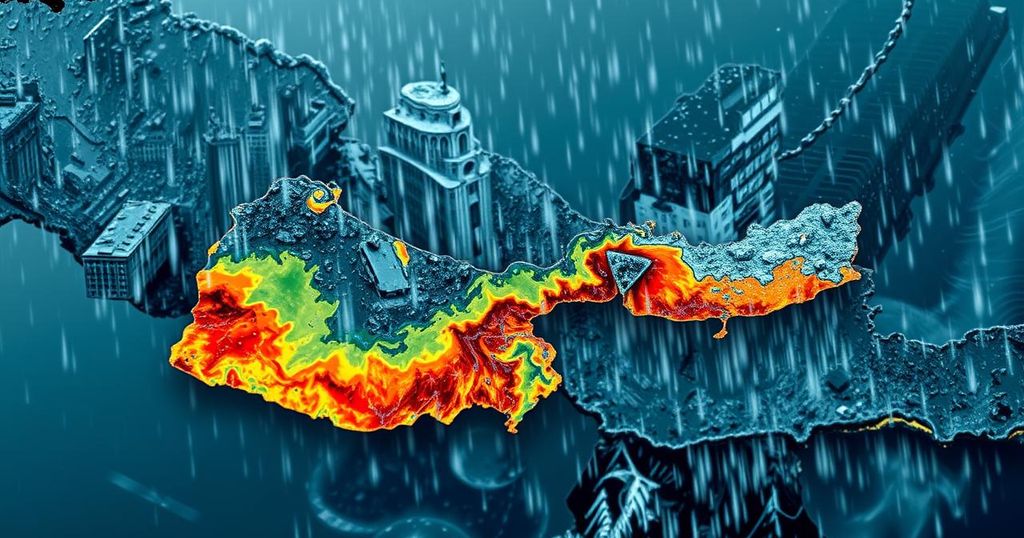Human-Induced Climate Change Intensifies Rains in Nepal, Scientists Reveal
A scientific study by the World Weather Attribution group indicates that human-caused climate change resulted in a 10% increase in the intensity of rainfall that caused devastating floods in Nepal in late September, killing over 240 people. The research stresses the urgent need for sustainable urban development and improved early warning systems to protect communities from similar future disasters.
A recent analysis conducted by the World Weather Attribution (WWA) group has concluded that human-induced climate change has made the rains in Nepal approximately 10% more intense, contributing to the devastating floods in late September that resulted in the deaths of over 240 individuals. This scientific evaluation highlights the severity of climate change impacts on extreme weather events and emphasizes the necessity for Nepal to curtail development in vulnerable, low-lying urban areas to safeguard communities against future flooding incidents. The catastrophic floods, which followed three days of unprecedented rainfall starting September 26, were particularly devastating in central and eastern Nepal, with certain weather stations recording over 320 mm of rain on September 28. This extraordinary deluge led to massive landslides, causing significant destruction and loss of life, particularly in the Kathmandu Valley where more than 50 fatalities occurred and property damage reached billions of rupees. Experts from WWA, which comprises a collaboration of international scientists, stress the critical role that climate change plays in exacerbating such meteorological extremes. The meaningful analysis suggests that rainfall events are likely to become increasingly severe unless global reliance on fossil fuels is reduced in favor of renewable energy sources. The findings indicate that without the current level of greenhouse gas emissions, the floods would have been less severe both in terms of intensity and the devastation caused. The research also pointed to the exacerbating effects of rapid urban expansion in flood-prone regions, specifically within Kathmandu, which is situated on the banks of the Bagmati River in a topographically vulnerable area. The study advocates for policies that restrict development in such high-risk zones, alongside enhancing early warning systems and emergency response protocols to mitigate the impact of similar future events. The findings are underscored by the remarks of several researchers involved in the study, noting that Asia is becoming increasingly susceptible to severe flooding as a result of rising temperatures. This pattern has been observed not only in Nepal but also in other countries including India, China, and Taiwan, indicating a pressing regional crisis linked to climate change. In summary, this analysis serves as a stark reminder of the urgent need to address the drivers of climate change and implement sustainable practices in urban development to protect vulnerable populations across Asia.
The issue of climate change and its effects on extreme weather patterns, particularly heavy rainfall and flooding, has garnered increasing attention from scientists globally. Kathmandu, as the largest city in Nepal, has been particularly hard-hit due to its topographical nature and rapid urbanization. The recent floods illustrate the real and immediate threats posed by climate change, with scientists emphasizing the necessity for preparedness and adaptation strategies to protect communities from further such disasters and mitigate future risks.
In conclusion, the recent analysis by the World Weather Attribution group highlights the significant impact of human-induced climate change on weather patterns, specifically in Nepal where intense rainfall has led to tragic floods. The findings reinforce the urgency of limiting urban development in vulnerable areas and enhancing readiness for extreme weather events through improved infrastructure and early warning systems. If proactive measures are not taken, the risks associated with climate change will likely escalate, leading to increased human and economic losses.
Original Source: www.theweek.in




Post Comment